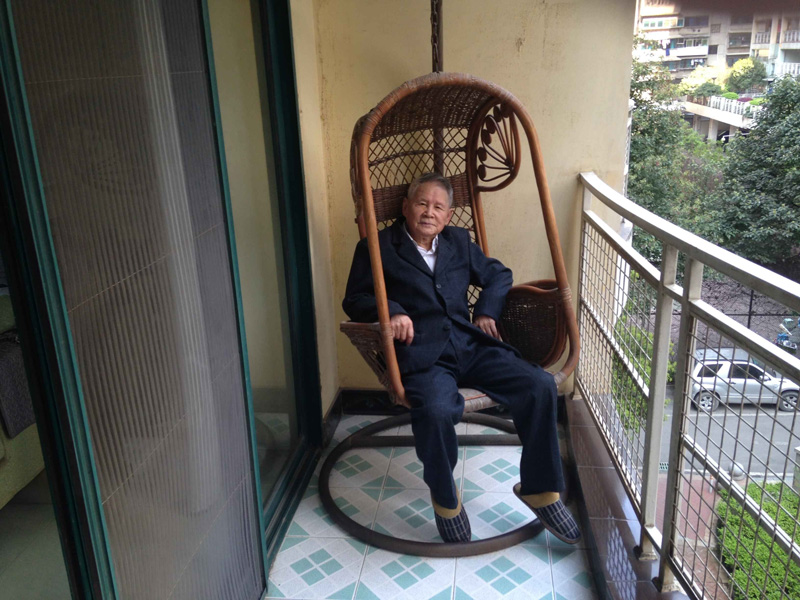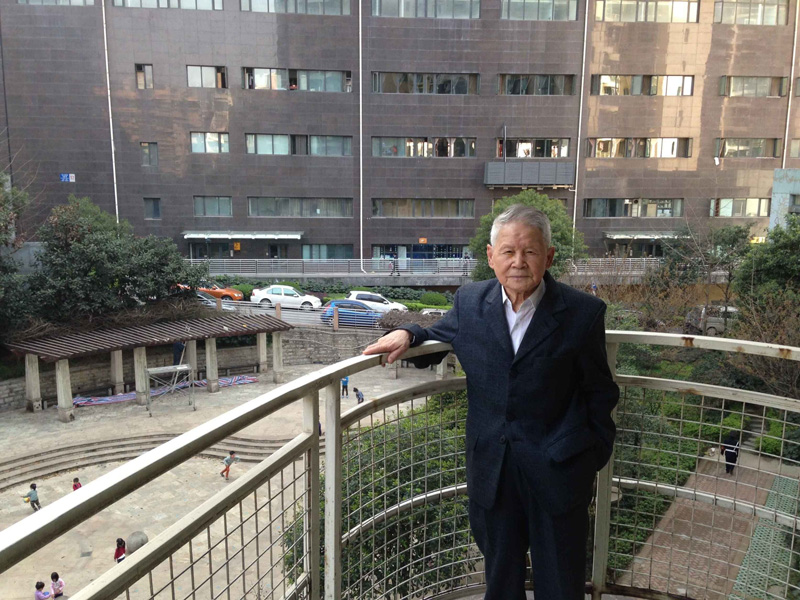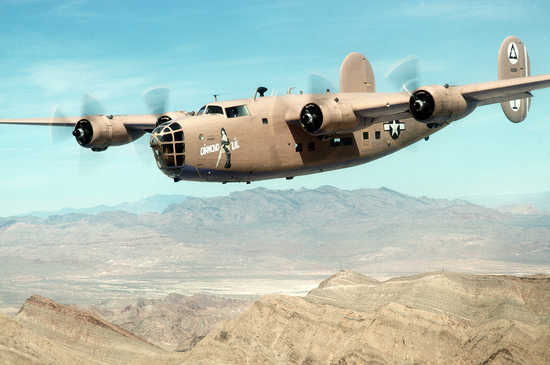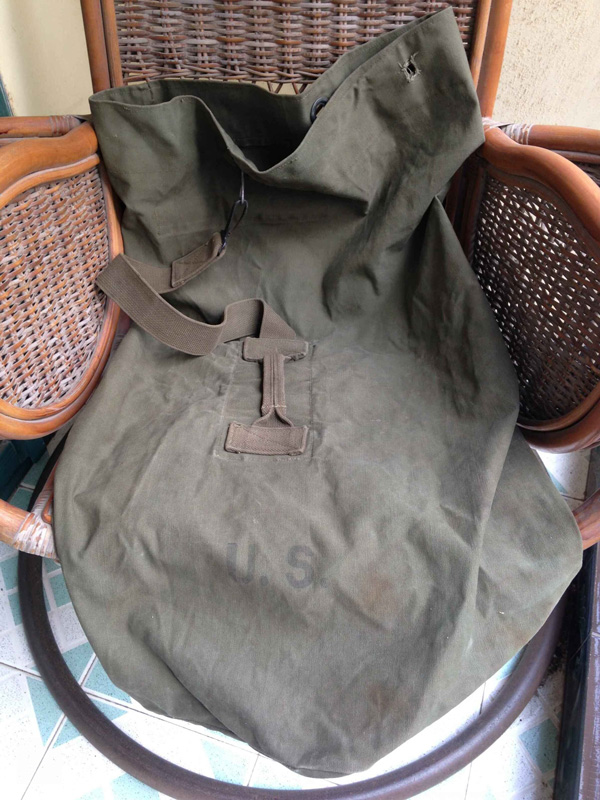WEIHSIEN : How I Found My World War II Hero – in CHINA
by Mary Taylor Previte
.jpg) |
| Eddie Wang when he graduated ... |
On a quiet Sunday afternoon, March 29, 2015, I opened an e-mail that took my breath away. The subject line said: “ I am the grandson of Eddie Wang (Cheng-Han Wang)”
I read it again. “ I am the grandson of Eddie Wang (Cheng-Han Wang)”
Eddie Wang was the Chinese interpreter on the American rescue mission that parachuted from a B-24 to liberate 1,500 Allied prisoners from the Weihsien concentration camp in China. August 17, 1945. I was twelve years old when Eddie Wang and the Americans came.
For eighteen years I’ve been looking for Eddie Wang. I’ve always hit dead ends. I remember seeing a byline in the New York Times: Edward Wong, reporting from Asia. No, Edward Wong wrote back to me. He knew nothing about Weihsien.
Finding someone named Wang in China is as difficult as finding someone named Smith in the United States. Finding one very special Wang from almost a billion and a half people? Not so easy.
In 1997, I searched successfully and found all of the six Americans who liberated Weihsien. But seven rescuers liberated the camp. Where was the Chinese interpreter, Wang Cheng-Han? We called him “Eddie.” His high school English teacher had given him that name.
Now here was his e-mail note.
“My name is Qian Wang (Daniel Wang),” the letter said. “I am the grandson of Edward Wang, who was the Chinese interpreter of the rescue team going to the Japanese concentrate camp in Weihsien, China, on August 17, 1945. I am currently living with my wife in Lexington, SC with a temporary VISA.”
Bless my soul! Answers in South Carolina!
“My grandfather is still alive, 90 years old now, living in China,” Daniel continued. “He is very healthy!”
The note said that his grandfather had once told him about his experience in Weihsien. But Daniel had almost forgotten a long-ago promise -- that he would try to find for his grandfather other members of the rescue team.
Daniel is a photographer. “I was reading a story about an American military photographer who served in Flying Tigers during WWII. And I remembered my promise. My grandfather helped. He gave me a name, Stanley Staiger. I googled it, and I found this page: http://www.weihsien-paintings.org/topica/archives/2009-1to12.htm. I confirmed with my grandfather about the time, place, and all the seven peoples' names.
“I can't describe how excited I am now!” Daniel wrote. “My hands are trembling! I enclosed two of my grandfather's picture taken on his 90-year-old birthday a few weeks ago. I don't know if you can receive this email, or still remember how he looked like. Please let me know if you are still trying to find him. I look forward to hearing from you!”
Daniel Wang had sent photographs.
 |
 |
| Pictures taken at Wang Cheng-Han’s 90th birthday |
I answered immediately and started buzzing family e-mail lines. The Japanese had interned five of us Taylors in Weihsien.
My daughter Alice jumped into my joy! “Wonderful! The last hero!”
What followed were weeks of phone calls and e-mails to Daniel Wang. Could this really be “our” Eddie Wang? How could I prove it?
With my successful search for the Americans on the team, I was helped because several of them had become close friends. They had kept in touch with each other. When I found each one, I called them, visited them, nudged their local newspapers to write about them.
With Eddie Wang, my search had to be different. He lives in China. He had not kept connected with others on the team. I drafted a long list of questions. I consulted my Chinese friends about proper etiquette. Were sixteen questions too many? Too stressful? After all, Mr. Wang is 90 years old. These Chinese friends added a very important fact: The name Wang is common. Cheng-Han is not .
My brother John wanted to know: “How will you know if he gets the answers right?” John, now a surgeon, had been interned in Weihsien, too.
“Because I already know the answers, “ I told him. “I’ll know if he gets them right.”
Daniel Wang came back with four pages of answers that fascinated and reassured me. Where did the team stay while they were in Weihsien? How would Mr. Wang describe Major Staiger? How close to the camp did the parachutes land?
In Mr. Wang’s answers, I was reading details I had heard from other members of the liberation team. Our family e-mails buzzed. “This Eddie Wang is for real.”
“I’ve decided to believe he’s real unless told otherwise,“ my daughter Alice wrote. “I think it’s wonderful.” Alice is a lawyer. She’s trained to ask questions.
Complications piled up. How would I talk to Mr. Wang? Grandson, Daniel, was full of suggestions like “Can you use Skype?” Bless my soul! I’m technologically-illiterate. How do you Skype?
My own questions were more down to earth: Can Mr. Wang still speak English? Daniel wasn’t sure. How would we talk together? My own Chinese is now disappointingly limited.
Having joined in every detail of this adventure, our dearest Chinese friends jumped in. I could drive to their home a half hour away, they offered, and use their speakerphone. If Mr. Wang needed an interpreter, they would sit beside me to help. Hui-Zhen even suggested the best time for the call: 9 a.m. when daylight lights the highway here for me in New Jersey and when rush hour traffic wouldn’t be dangerous for my drive. That would be 9 p.m. in China, before Mr. Wang went to bed.
We prepared carefully. In every call to Daniel, I asked him: “Will this excitement make your grandfather sick, will it give him trouble in any way?” For each step, Daniel got approval from his grandfather.
I had one main request; Tell me your story.
Hui-zhen phoned Mr. Wang at exactly 9 a.m., Sunday, May 3. We were seated side by side at their dining room table, talking into the speakerphone – all the way across the world. Mr. Wang, talking from Guizhou Province in China, sounded like he was sitting with us, chatting with friends. He amazed me. Now 90 years old, in good health, with an amazingly sharp memory, he still has an amazingly good mastery of English.
His is an amazing story. I vowed I would not cry. But I get goose bumps as I think about this conversation.
How do you thank a hero who risked his life for you?
“Mr. Wang, I thank God that he has given me the gift of living long enough to talk with you and to thank you for helping to liberate all of us in Weihsien from the Japanese.”
I asked Mr. Wang to tell his story. Bless my soul! We chatted for more than an hour.
Here are some tiny details that fascinated and delighted me: A teenager, Betty Lambert, and another teenaged girl taught him to dance in Weihsien. A Greek girl gave him a piece of silk parachute embroidered with the rescue scene and autographed by the seven liberators. He knew nothing about religion, so someone had to stop him when he was smoking in the church. The team ate their meals at first from the three camp kitchens but later from food dropped by American bombers. The team lived in and ate their meals in the building that had been Japanese Headquarters. Once, he made a funny translating mistake when the team ate in an eating place in the town of Weihsien. “In this Chinese restaurant where I was translating for the team, I heard ‘chicken legs’ as ‘chicken eggs.’” Sometimes he got diarrhea and had to be treated by team medic, Raymond Hanchulak.
When I asked Mr. Wang (I COULD'NT call him "Eddie.") what he loved most about his experiences there, he said, "Everything was so new to me. I loved it all," -- that he was only 20 years old, so many, many children, and everyone talking English.
He loved to play sports with the children.
There was nothing he didn't like, he told me.
BUT the parachute drop was a nightmare! He had been trained to do parachuting in a Chinese camp, a simulation on the ground only, never
 |
| An early model of a B-24 |
a real jump from an airplane during his training. He said he once questioned his training instructor that his life could be endangered doing real parachuting if he was trained only by simulation. The instructor told him, "You'll be fine. You are not a big guy," So he always worried about a real jump. Fortunately, the parachutes they used on that mission would be automatically deployed. It saved his life. When he jumped from the B-24, the sudden strong flow of air made him dizzy, almost unconscious. But the parachute deployed in about 15 seconds, and the powerful pulling force awakened him. This was his first jump from a plane. He landed safely.
Wang Cheng-Han began to learn English in Chengdu’s Shude High School, one of the tops in China. He was a sophomore student in Sichuan University when he joined the military service in December 1944 and trained in Luzhou. But he didn’t like the training there because they were not trained for how to fight, only non-combat drilling. Non-combat drilling? There was a war out there! He wanted to fight the Japanese army.
Later, he was recruited into the telecommunication group in Chongqing where he learned Morse code. After that, he was recruited in the interpreter training class and completed a 25-day translation training before he was assigned, in May 1945, to the interpreter pool in Kunming. The American Office of Strategic Services (OSS ) recruited interpreters from that pool. There, he was employed and assigned to Special Intelligence (SI) group and to Major Stanley Staiger’s team. Major Staiger headed the Weihsien "Duck Mission" rescue team.
The Weihsien rescue mission was organized in Kunming, the headquarters of OSS. In Xi-An, on the early morning of August 17, 1945, Eddie Wang was informed that the team was about to carry on a rescue mission at Weihsien, Shandong province. Only then, was he informed of the details about flying to Weihsien.
Previously, Mr. Wang had trained in using small arms, light machine gun, Bazooka (a small rocket launcher) and TNT at Kaiyuan where he had learned parachuting.
So at the age of 20, Eddie Wang parachuted from a B-24 over Weihsien. He remembers carrying a pistol, a carbine, and a dagger.
Team members landed in a field of gao-liang not far from the camp.
He says he was closest in friendship with Peter Orlich, the radio operator on the team. Peter Orlich was 21 years old.
Rescue team members took over and stayed in what had been the small Japanese headquarters building, not far from the entrance to the camp. There was a toilet downstairs that allowed only two people to use it at the same time.
Mr. Wang says his job in Weihsien was to translate for the team anything to do with China. When twenty Americans of the Special Intelligence group later arrived in Weihsien, they brought their own Chinese interpreter.
In the turmoil that swept China after the war, Mr. Wang says he lost most of his treasures from that rescue mission in Weihsien. Here’s a picture of the duffel bag he used in Weihsien.
 |
| Duffel bag used by Wang Cheng-Han in Weihsien. Note the letters “U. S.” printed on the bag. |
After the war, Wang Cheng-Han graduated from Sichuan University. He became an engineer. Once on a business trip, he visited Weihsien. He retired in 1990. #
 |
| print ! |
